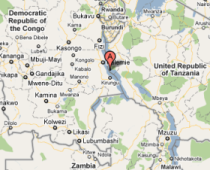Strategic financial planning for water and sanitation in Central Africa
Investing in water supply and sanitation will have immense economic benefits for households, communities, countries and the world at large. Estimates from the OECD put these benefits emanating from, time savings, health care saving, and productivity savings (productive days of the workforce, school attendance etcetera) at about US$84 billion per year if the water and sanitation MDGs were met. There need not be a greater motivation for investing in Water and Sanitation especially in developing countries where the benefit-to-cost ratio has been reported by the OECD to be as high as 7 to 1 for basic water and sanitation services.
Because of the realisation that innovation in financing is required to achieve such benefits, countries in Central Africa requested for training in Strategic Financial Planning (SFP). This request was met when a training workshop hosted by Global Water Partnership was held in Douala, Cameroun, from 1 – 3 February 2012 in partnership with the European Union Water Initiative Finance Working Group and Cap-Net. Participants came from Cameroon, Republic of Congo, São Tomé and Principe, and the Central African Republic. The workshop covered contextual and theoretical aspects of SFP as well as practical experiences from a completed SFP project in Lesotho. Participants were given guidance on how to launch a SFP process. The group also had the chance to learn from the experiences of Lesotho in using FEASIBLE - a computer-based decision support tool.
Because strategic financial planning is essentially a lengthy process requiring facilitation, the course was seen as a start for Central Africa. Facilitators at the course reported that to promote SFP in Sub-Saharan Africa, a suitably simple methodology should be developed and made widely available to interested governments. Many of the participants including water companies and finance and planning officials planned to take SFP forward in their countries after the course.
For more information about the course contact Aurélie Vitry aurelie.vitry@gwp.org and Luc Claude Mamba lc.mamba@gwpcaf.org.
Document Actions













